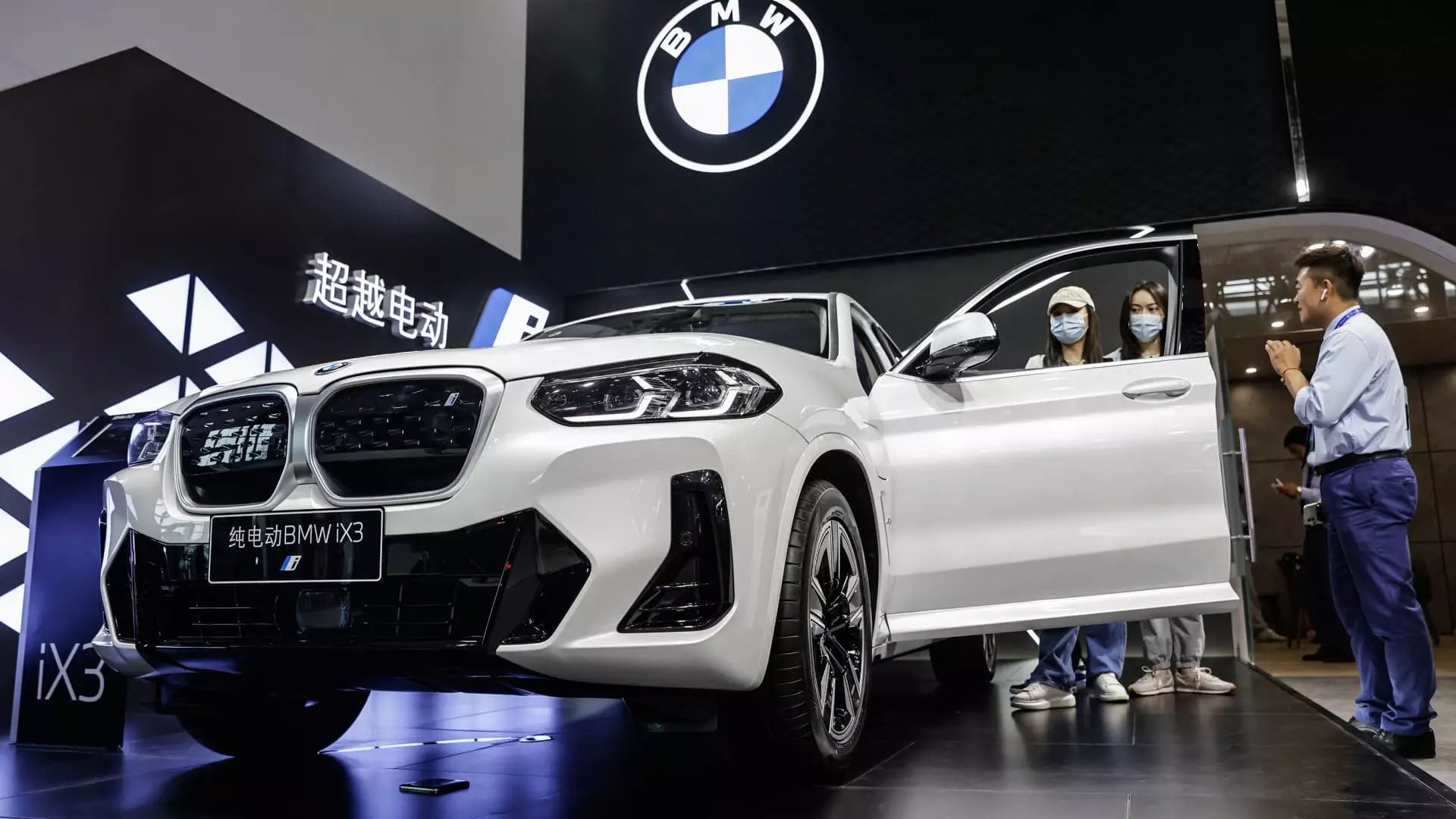In 2024, BMW’s reported net profit has hit a significant stumbling block, plummeting by an eye-watering 36.9% to a mere 7.68 billion euros ($8.32 billion). This data paints a bleak picture for one of Germany’s premier automotive brands and starkly highlights the ongoing challenges posed by subdued demand in the crucial Chinese market. The reduction is not merely a minor fluctuation; it is a clarion call underscored by geopolitical and economic currents that are churning violently in today’s volatile market environment.
The China Conundrum
It’s impossible to overlook the looming shadow of the Chinese market in ascertaining BMW’s financial downturn. The automotive giant has made it clear that the “challenging situation in China” is a significantly adverse factor, contributing to an overall decline in sales. China has long been considered the crown jewel for luxury car manufacturers, and a slump there resonates through the entire financial framework of companies dependent on that market. With Chinese consumer demand faltering, BMW’s lofty aspirations for growth appear more fragile than ever.
The Price of Tariffs
Adding salt to the wound, BMW’s forecast through 2025 has had to grapple with impending tariff impacts, a bitter pill for any global manufacturer. The company’s prediction of a decrease in earnings margins—from 6.3% to a projected 5% to 7%—is a direct consequence of tariffs that have plagued its operational landscape. These levies, particularly the ones affecting U.S. steel and aluminum imports, are now exacerbating an already fraught situation. It’s a classic example of how political decisions can ripple through an economy, harming entities that had no part in the original dispute.
President Tariff’s Impact on the Brand
BMW’s CFO offers a sobering insight, suggesting that responsibilities resulting from tariffs could shave a full percentage point off its autos earnings margin, vividly illustrating how interconnected our economies have become. The modern zeitgeist is one of globalization, yet policymakers seem blinded by nationalistic fervor and protectionist instincts, often mistaking them for strength. As BMW’s CEO Oliver Zipse articulated in a recent interview, using tariffs as a tool to bolster competitiveness in an era where industries are woven into a global fabric may be an antiquated strategy.
Implications Beyond the Numbers
More troubling than the numbers themselves is what they suggest for the future. BMW’s struggle underscores a larger issue: the erosion of free trade principles in the face of short-term political gains. The backlash against globalization has created a battleground where international businesses are forced to fight with one hand tied behind their backs. And while the corporate giants like BMW may weather this storm, the ripple effects on jobs, innovation, and consumer choice product must be closely monitored. This trend cannot be allowed to define the future of global commerce; otherwise, the ramifications may echo far beyond the financial districts of Munich and beyond—a chilling thought for a future that thrives on collaboration and innovation.

